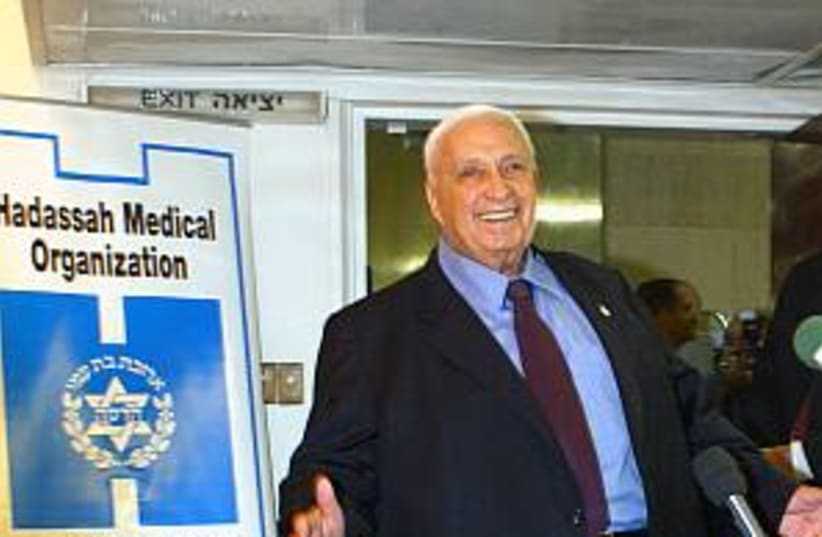| READ MORE ON ARIEL SHARON'S TREATMENT: | |
 | |
Omri Sharon thanks public for prayers, doctors for their care
All of PM's functions are within normal range; doctor: "We were at the edge of the cliff, and now we moved five meters back."


| READ MORE ON ARIEL SHARON'S TREATMENT: | |
 | |